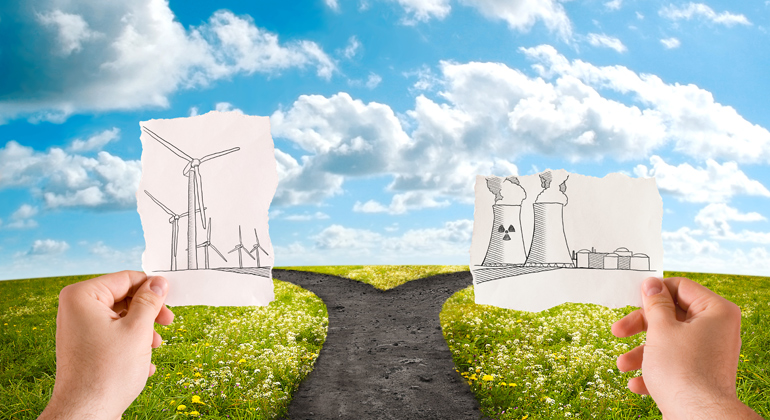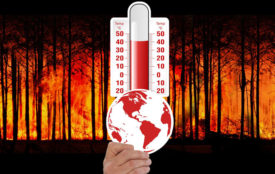Goodbye nuclear power!
“Nuclear power on the rise again” wrote the Munich newspaper tz at the weekend, shortly after 30 countries had spoken out in favour of the further expansion of nuclear energy at a conference in Brussels (Nuclear Energy Summit). The reason given: Nuclear energy is essential for combating climate change because it emits no CO2.
The nuclear lobby has been campaigning for a renaissance of nuclear power for decades. So far in vain, as fewer and fewer nuclear power plants have been in operation worldwide for many years. Instead, renewable energies are being expanded ever faster. And the last World Climate Conference in Dubai has just decided to triple renewables worldwide by 2030.
So on closer inspection, the decision of the 30 pro-nuclear states once again proves to be a pipe dream. An illusionary bubble:
- Nuclear energy is – as Chernobyl, Harrisburg and Fukushima drastically demonstrated – the most dangerous energy generation of our time.
- Nuclear waste radiates for a million years and will therefore burden 30,000 generations after us. Just so that one or two – our – generations can use nuclear power.
- This also applies to the mini power stations that are now planned but not yet in operation anywhere. The first planned mini power plant in the USA has since been cancelled.
- Electricity from nuclear power plants is already two and a half times more expensive than electricity from the sun and wind, as can be seen in England. The follow-up costs are not included.
- It could be another 20 years before mini-nuclear power plants are in operation. That is too late for the fight against climate change.
- The export of small modular reactors (SMRs) to poor countries would lead to even more dictators and autocrats acquiring dangerous nuclear weapons in addition to the nine countries that currently have nuclear weapons. This is because nuclear power plants supply the material for building nuclear bombs. That would be a global suicide programme.
On the same day that the 30 countries were discussing the future of nuclear energy, the German Federal Office for Nuclear Waste (BASE) published a study in Berlin stating that even the hotly debated mini-nuclear power plants can neither save the climate nor solve the nuclear waste problem.
Trying to combat climate change with nuclear energy is like trying to curb hunger with caviar – too expensive and not sustainable. The construction of new nuclear power plants is too slow and jeopardises security of supply – like the nuclear power plants in France that were shut down in summer 2023 and those in England that were shut down at the beginning of 2024. Today, nuclear power plants still supply two per cent of the world’s total energy needs.
Nuclear power remains an unmanageable risk
New nuclear power plants threaten the next super-GAU. In summer 2023, half of all nuclear power plants in France were shut down. The French only made it through the summer by importing German wind and solar power and in England, six out of nine nuclear power plants were shut down at the beginning of January 2024. One nuclear disaster follows another.
The future belongs to renewables. The sun sends us 15,000 times more energy than all eight billion people currently consume. The solar age is beginning – the sun is winning. Goodbye nuclear power! The largest solar plant in the world is currently being built in the United Arab Emirates. It will replace more than 20 nuclear power plants by 2030.
Source
Franz Alt 2024 / Translated with www.DeepL.com/Translator








